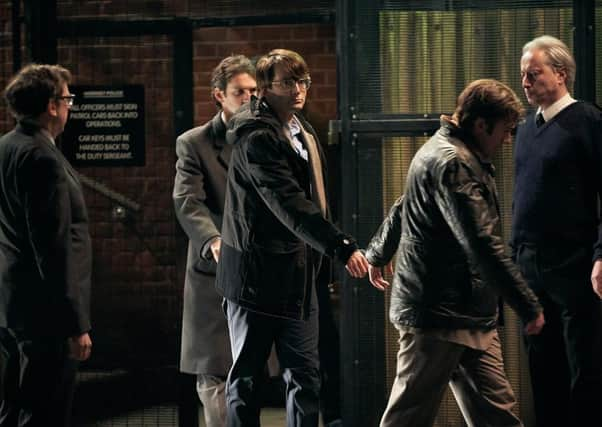Review: David Tennant on top form in his darkest role as serial killer in Des


It’s a leap into hell. Des is Dennis Nilsen, the Fraserburgh-born serial killer who preyed on starry-eyed young men pitching up under London’s bright lights, murdering at least 12 between 1978 and 1983.
Tennant in truth has always juggled feelgood family favourites – the cartoons, What We Did on Our Holiday, Nativity 2 – with dark and creepy stuff like Secret Smile and Deadwater Fell. Here, though, he is using that same bouncy, gee-whizz voice to explain away the utmost evil.
Advertisement
Hide AdAdvertisement
Hide AdNilsen’s rationale for how he disposed of his victims? A simple matter of housekeeping: “I took no pleasure in cutting up people, burning heads or boiling bodies. I had to. There was no more space.”
A warning: regular exposure to grisly crime sagas and especially those subtitled Portrait of a Monster may not inure you here. The skies are dark when the Dyno-Rod man discovers that the blockage in the drain at No23 Cranley Gardens, Muswell Hill, has been caused by human remains and I don’t remember the sun coming up at all in the first of this three-parter. But Tennant is superb. We don’t see any of the murders, at least not in the first hour, although there is enough that’s chilling in Tennant’s portrayal of Nilsen’s ordinariness, calmness and, worst of all, matter-of-factness over his horrific acts.
When the police arrive at Nilsen’s flat and are almost knocked out by the stench of rotting flesh, Det Insp Peter Jay (Daniel Mays) challenges him: “Don’t muck me about, where’s the rest of the body?” Nilsen deadpans: “In the cupboard.” Jay quickly thinks there may be more to this crime: “Are we talking about one body or two?” Nilsen with a shrug: “Fifteen or 16.”
Tennant shares a fine head of hair with Nilsen, who died in jail in 2018, and the pale blue shirt and outsized 1980s glasses familiar from the mugshots complete the look. But hang on, it shouldn’t be that easy impersonating mass murderers. Tennant still has to make us contemplate that downturned mouth, the quick, easy answers that tumble from it, and to briefly wonder if the tongue inside might be forked and subhuman.
Advertisement
Hide AdAdvertisement
Hide AdNilsen is pleased to be under interrogation: “It’s a relief to get this off my chest.” He begins by suggesting good intentions: “London can be a lonely place. A friendly face goes a long way.” He becomes moralistic about the poor hand dealt his victims: “This bloody government does nothing for them. It’s very sad.”
As macabre details emerge, he becomes even chattier, attempting a few jokes, and revealing how he reckoned he did one of the poor wretches a favour by revving up The Who’s Tommy on the hi-fi: “Imagine hearing that for the first time”. The detectives need a break. “No, he says, “we’ve got to get to the bottom of this once and for all”.
For the van journey from cell to court he’s offered a mask but declines, saying: “I’ve got nothing to hide.” He’s enjoying his notoriety. The serial killer’s biographer, Brian Masters (W1A’s Jason Watkins), visits him and Nilsen warns: “You will find a full inquiry into my life and deeds distressing.” Two more parts to come (gulp). Tennant may need a year of cartoons to expunge the memory.
Comment Guidelines
National World encourages reader discussion on our stories. User feedback, insights and back-and-forth exchanges add a rich layer of context to reporting. Please review our Community Guidelines before commenting.